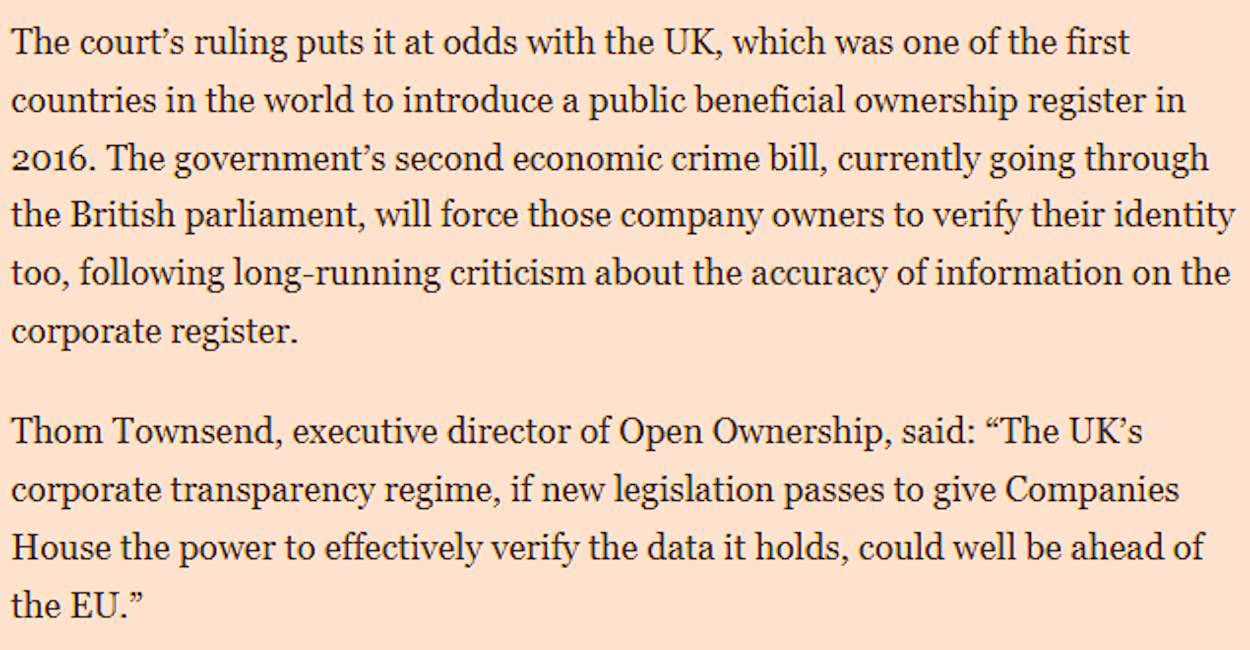BREXIT MEANS WE RUN OUR OWN COUNTRY AGAIN
Summary:
A ruling in 2022 by the EU Courts (The CJEU) resulted in member states having to shut down open registers of corporate ownership – registers that had been put in place specifically to reduce corruption and increase transparency. As the UK is now outside of the jurisdiction of the CJEU, the more transparent approach continues to be in place, helping to prevent corruption.
Explanation:
A ruling in 2022 by the Court of Justice of the European Union (CJEU), declared that EU legislation around the ownership of companies within the EU was invalid and as such illegal. The legislation had been in place since 2017, and had required all EU member states including the UK to maintain central registers containing information on the “beneficial owners” of legal entities (companies) established within their jurisdiction.
In this context, the term “beneficial owner” is interpreted quite broadly – as it includes not only the people who hold a significant share in the company, but also those who have significant influence in the decision making.
As the UK had already left the EU when the CJEU made the ruling, the UK was under no obligation at all to take the ruling into consideration – and as such completely ignored it. In fact the UK has since doubled down, and taken the intent of better transparency even further with the Economic Crime and Corporate Transparency Act of 2023 (ECCTA).
In the words of Macfarlanes LLP, “The CJEU’s decision now means that beneficial ownership information will be more publicly available and easily accessible in the UK than in the EU”
Reference: https://ft.com/content/e4b31a4e-a79d-40f7-8a19-c1e451a95c4b
Reference: https://www.pressreader.com/uk/the-scottish-mail-on-sunday/20240218/283016879629601

